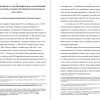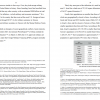Тема: Shanghai Cooperation Organization: Possible Prospects for Israel and Taiwan
Закажите новую по вашим требованиям
Представленный материал является образцом учебного исследования, примером структуры и содержания учебного исследования по заявленной теме. Размещён исключительно в информационных и ознакомительных целях.
Workspay.ru оказывает информационные услуги по сбору, обработке и структурированию материалов в соответствии с требованиями заказчика.
Размещение материала не означает публикацию произведения впервые и не предполагает передачу исключительных авторских прав третьим лицам.
Материал не предназначен для дословной сдачи в образовательные организации и требует самостоятельной переработки с соблюдением законодательства Российской Федерации об авторском праве и принципов академической добросовестности.
Авторские права на исходные материалы принадлежат их законным правообладателям. В случае возникновения вопросов, связанных с размещённым материалом, просим направить обращение через форму обратной связи.
📋 Содержание
Chapter 1. Theoretical and Methodological Framework of the Study of the SCO from the Perspectives of Israel and Taiwan 11
1.1 SCO as Intergovernmental Organization: Theoretical Aspects 11
1.2 Preconditions and Conceivable Obstacles for Cooperation between Israel and
Taiwan with the SCO 30
Chapter 2. The SCO’s Potential Hard Power Impact on Israel and Taiwan 37
2.1 Potential Security Significance of the SCO for Israel and Taiwan 39
2.2 Potential Effects of the SCO on Israel's and Taiwan's Economies 49
Chapter 3. Public Views on the SCO and Research Results 56
3.1 Comparative Analysis of Public Attention to the SCO with the EU in Israel and
Taiwan 56
3.2 Findings of This Study and Forecast 62
Conclusion 68
References 70
Appendices 78
📖 Введение
Studying and analyzing the SCO is necessary and urgent. The SCO has the potential as a military threat to those countries that are not participating in the SCO. Military powers such as Russia, China and India are members. Russia is the country with the largest number of nuclear warheads in the world and also plays a key role in the security field of the SCO. Although the SCO states that it does not oppose any country or region, in the absence of organizational deterrence penalties, the SCO does not rule out the possibility of becoming a military alliance, and its military power is no less than that of a formal international military alliance.
In addition, the total population of the SCO member states, about 3.397 billion, far exceeds the 1.058 billion in the collective West, including the European Union, the United States, Japan, the United Kingdom, South Korea and Australia. This data does not include the SCO observer states and dialogue partners. Even if the GDP of SCO member states accounts for nearly a quarter of global GDP in 2021, the population can still be regarded as the SCO’s market potential and labor force. Without any direct involvement from the collective West, the SCO has the potential to counterbalance the collective West and be globally influential.
Novelty of the research. While many researchers focus on the relationship between the SCO and great powers, no researchers have yet studied the SCO’s relations with its member states’ unfriendly non-member neighbors, including Israel and Taiwan. These two non-SCO members are respectively seen as geopolitical hotspots of recently existing and possible conflicts. Studying the Israeli and Taiwanese perspectives on the SCO is novel, urgent and necessary, especially for Israel and Taiwan.
The purpose of this thesis is to verify the hypothesis, “The Shanghai Cooperation Organization is a significant player in the security and economic domains of both Israel and Taiwan, yet it receives relatively little public attention, compared with the EU,” and based on these observations and analyses, the possible prospects for Israel and Taiwan on the SCO are speculated.
To accomplish the purpose, this thesis contains 6 objectives:
1. Studying pertinent theories to establish the direction and focus of the research;
2. Recognizing the current status of Israel and Taiwan’s connections with the SCO;
3. Identifying the potential security significance of the SCO for Israel and Taiwan;
4. Determining the potential effects of the SCO on Israel’s and Taiwan’s economies;
5. Verifying current public attention of Israel and Taiwan to the SCO;
6. Listing all the findings of this study and forecasting Israel and Taiwan's potential worst and best outcomes from the SCO.
The object of this thesis is the Shanghai Cooperation Organization (SCO), and the subject is the prospects of Israel and Taiwan on the SCO.
Theoretical and Methodological Background to the Research. This master’s thesis is within the framework of Kenneth Neal Waltz’s neorealist theory, whose assumptions include: (1) states are the units whose interactions form the structure of international political systems; (2) states behave rationally, maximizing their own utility; (3) states pursue their interests (especially survival) rather than behaving altruistically; and (4) no external enforcer of agreements exists. These assumptions do not contradict within the SCO reality and can clearly define the framework of this research...
✅ Заключение
Regarding security, by cooperating with the SCO, China satisfies the characteristics of a dissatisfied challenger in the power transition theory. In addition, the SCO is unable to control military operations among its members in its anarchic nature, and this has led to the SCO becoming a military cooperation platform that potentially affects Israel and Taiwan. Based on the power transition theory, rational SCO member states prevent China from joining conflicts with Israel or Taiwan, because Israel and Taiwan are militarily assisted by the United States. Any conflict between China and the United States may negatively affect the national interests of SCO members as well as the whole world.
Regarding the economic aspect, the SCO is linked to some extent with Israel and Taiwan. China, a SCO member state, is also the primary trading partner of Israel and Taiwan. In addition, Russia and India, which are among the top five military powers in the world along with China, are also the top five SCO trading partners of Israel and Taiwan. According to the share of global import and export trade, more than 15% of the trade volume of Israel and Taiwan is related to SCO participating countries. Unexpectedly, Israel's import partners are more dependent on SCO participating countries than Taiwan, even though China’s share of Taiwan’s global import trade is already 7% greater than China’s share of Israel’s global import trade. Even if Israel and Taiwan are not members of the SCO, their economies are affected by the SCO.
Even though the SCO has an influence on the security and economy of Israel and Taiwan, the public in Israel and Taiwan still pays less attention to the SCO than the European Union, an intergovernmental organization with a similar number of members. Furthermore, if only the searches for the English abbreviations of the SCO and the EU are focused, the results related to the SCO are definitely less than those of the EU in the past five years.
With the increasingly tense relations between Israel and Taiwan and SCO members Iran and China in recent years, the SCO has the opportunity to increase its public attention in Israel and Taiwan in the near future. Even if Israel and Taiwan are unlikely to join the SCO in recent years, they still have to observe the dynamic changes and member interactions of the SCO through various channels. After all, the SCO does have a close influence on the security and economy of Israel and Taiwan.





